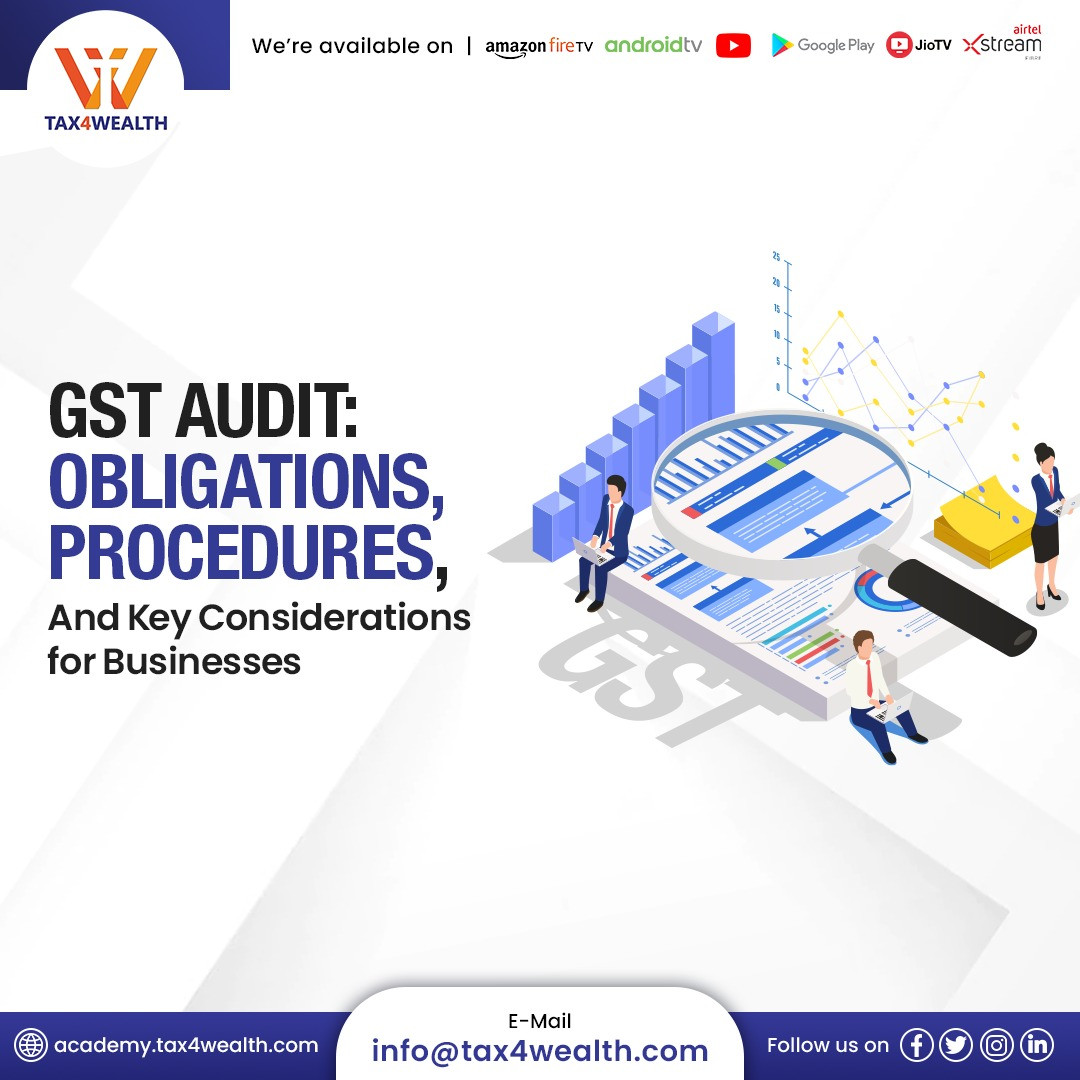
GST Audit: Obligations, Procedures, and Key Considerations for Businesses
Goods and Services Tax (GST) is a significant indirect tax reform implemented in several countries to streamline the taxation system. It imposes various obligations on businesses, including the requirement to undergo periodic GST audits. A GST audit is conducted by tax authorities to ensure compliance with the GST laws and regulations. In this blog post, we will explore the obligations, procedures, and key considerations that businesses need to be aware of when it comes to GST audits.
Understanding GST Audit Obligations:
Under the GST framework, businesses are obligated to maintain proper records and submit accurate GST returns. They are also required to undergo GST audits as mandated by the tax authorities. The audit aims to verify the correctness and reliability of the information provided in the GST returns.
Types of GST Audits:
There are two main types of GST audits:
1. General GST Audit: This type of audit is conducted to assess the overall compliance of a business with the GST laws. It thoroughly examines the business's records, returns, and other relevant documents.
2. Special GST Audit: A special audit is conducted when the tax authorities suspect any discrepancies or non-compliance. It may be initiated due to factors such as high-value transactions, significant variations in reported GST liability, or inadequate documentation.
GST Audit Procedures:
The following procedures are typically followed during a GST audit:
1. Notice: The tax authorities issue a notice to the business, specifying the audit period and other relevant details.
2. Document Submission: The audited business is required to submit various documents, including sales and purchase invoices, account books, bank statements, and GST returns, for the audit process.
3. Verification: The tax authorities scrutinize the submitted documents to ensure accuracy and compliance with GST laws. They may also conduct interviews or seek additional information during the audit process.
4. Findings and Rectification: Upon completion of the audit, the tax authorities provide a report highlighting any discrepancies or non-compliance. The business can rectify errors and respond to the audit findings.
Key Considerations for Businesses:
To prepare for a GST audit and ensure a smooth process, businesses should keep the following considerations in mind:
1. Adequate Record Keeping: Maintain detailed and accurate records of all transactions, including invoices, receipts, and other relevant documents. This helps in presenting a clear picture of the business's GST compliance during an audit.
2. Timely GST Returns Filing: File GST returns promptly to avoid penalties and demonstrate good compliance practices.
3. Internal Controls and Reconciliation: Implement robust internal controls to reconcile GST data with financial records. Regularly review and validate the accuracy of GST returns before submission.
4. Professional Advice: Seek guidance from tax professionals or GST consultants to comprehensively understand the GST laws and regulations. They can assist in addressing any queries or concerns related to GST compliance.
Conclusion:
GST audits are a critical aspect of ensuring GST compliance for businesses. By understanding the obligations, procedures, and key considerations associated with GST audits, businesses can better prepare themselves for the audit process and minimize the risk of non-compliance. Adhering to GST regulations, maintaining proper records, and seeking professional advice when needed are essential steps in successfully navigating the GST audit landscape.
For more info, Visit us at: https://academy.tax4wealth.com/
Related News
No comments yet, Be the first to comment.













